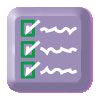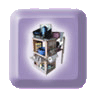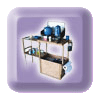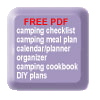Basic camping tips for the tent camper!
What we have here are miscellaneous camp kitchen tips. The kitchen is the most difficult part of camping to get right and where you have the biggest negative consequences if you get it wrong. Failure in food practices can result in anything from minor irritations like burnt food or pesky bugs to life threatening oversights like food poisoning and cross contamination. These tips should help make you mindful of the right practices. Probably the most important attribute the camper can have is the ability to PAY ATTENTION, don't we know it? So pay attention to these and teach your crew to do the same. That's probably my number one camping tip!
Ice chest and cooler tips
- use separate ice chest - one for perishable food, one for drinks, one for freezer (see below). This makes it easier to find things in your perishable food cooler and will help make the ice last longer.
- keep coolers in the shade and cover with tarp or blanket if it's hot.
- you might want to store coolers inside your vehicle at night especially if camped in National Park campgrounds as the bears and such have learned that coolers contain food and could thus be a real camping hazard.
- block ice works good for the food cooler, since it will last longer and crushed/cubed is good for the drink cooler.
- empty out the water at least daily to help preserve ice and for sanitation reasons as blood from meats can be carried by the water, contaminating other foods.
- clean cooler with hot soapy water and rinse with bleach disinfectant (1 cap bleach/ 1 gallon of water) before storing, to keep mold and bacteria from proliferating .
Ice with a handle
 Here is a trick we all know but rarely use, yet we should get in the habit of doing this because:
Here is a trick we all know but rarely use, yet we should get in the habit of doing this because:
- it saves you money as you won't have to buy ice.
- as the ice melts in the jug it becomes available to drink ( this is especially meaningful if you are going to be out for longer than a few days. The longer the stay the more water we need.)
- this saves you from having to drain your cooler and thus minimizes the possibility of blood contaminating other foods.
- when camping in cooler weather you can refreeze the ice at night by taking it out of the cooler. (I do a lot of winter camping where it is warm during the day and cold at night.)
- having ice in your freezer will extend the expiration of perishables at home should you lose power for a long period of time.
Camp freezer
 This is something that will really help you if you are going to be out tent camping for more than just a few days:
This is something that will really help you if you are going to be out tent camping for more than just a few days:
- hard freeze, ahead of time in your home freezer, all meats you will be using after the third or fourth day.
- put meat in extra insulated cooler with as much dry ice as it will hold (dry ice is sold by the pound at many grocery stores)
- wrap and bungee cooler with an old blanket or tarp.
- Store in shade and do not open till you need the first meal. (Depending on how good your cooler is and how much dry ice you used - things could still be frozen after four days.)
Note: Having a freezer makes ice cream, frozen pies and such possible for desserts. Be careful with dry ice as it can frost bite skin in a matter of seconds.
Critter and bug control
- Realize that food is the main, if not the only thing that attract critters like skunks, raccoons and even bears, as well as many insects, so keep food spills cleaned up and open boxes and canisters stored in plastic totes or the ice chest.
- Do not dump bacon grease, bones, peelings and the like on the ground. Instead burn them in your fire pit. Train your crew to pick up dropped food like potato chips or cookie crumbs as these will attract ants, if nothing else.
- Do not bury trash or food scraps, instead burn them.
- Rinse out food scraps from empty cans before putting in trash and try to burn flammable trash as you use it.
- Bugs hate fire, so keep a lively one burning especially at your camp during waking evening hours but also in the daytime if bugs are bad.
- Position the camp lantern and other light well away from kitchen and gathering areas when you don't need the light.
- I'm told black clothing attracts fewer insects. (Some feel just exactly the opposite about this. Maybe this is only true at night?)
- Also ingesting lots of garlic and onion is rumored to discourage biting bugs. ( And maybe some people. ;-)
- Do not use a light while entering or exiting your tent and keep it closed unless you are getting in or out of it. (This will at least keep you bug free while sleeping.)
Camp food preparation and sanitation
 Tent camping dictates an extra measure of care when it comes to food preparation since you will likely be, perhaps, many hours away from the nearest medical facility. A case of food poisoning 10 miles down a rough, 5 mile an hour, four wheel drive, dirt road is the last thing you need. So here are a few things to be extra careful about:
Tent camping dictates an extra measure of care when it comes to food preparation since you will likely be, perhaps, many hours away from the nearest medical facility. A case of food poisoning 10 miles down a rough, 5 mile an hour, four wheel drive, dirt road is the last thing you need. So here are a few things to be extra careful about:
- Avoid cross contamination by segregating raw food preparation from meat preparation areas - different cutting boards will help with this. (Cross contamination is what happens when the same knife that just cut the raw meat gets used to chop the raw vegetables for the salad, for example.) This is a very common mistake with potentially catastrophic consequences.
- Kitchen crew training is often necessary to avoid cross contamination and other common sanitation problems. (When camping, the kitchen crew is not always the same people who are familiar with standard kitchen practices.)
- Be deliberate about keeping perishables in the cooler.
- Shade your food preparation and presentation areas when as sunlight vastly accelerates warming of perishables.
- Keep foods covered even during camping recipe preparation as much as possible - use wax paper or plastic wrap to keep bugs out of food that is being served.
- Have hot soapy water available for all kitchen personnel to keep hands and dropped utensils clean.
- Three tubs for a wash - rinse - sterilize cleanup table works good for having everyone do their own dishes. (Use 1 cap of bleach per one gallon of water in the sterilize tub.)
- Let dishes dry in the sunlight. (Sunlight will kill many bacteria.)
- Keep condiments in ice on your serving table. (You need to be particularly careful with mayonnaise.)
Have a look at our camping kitchen website. It will help teach you how to solve the biggest tent camping problem - The Kitchen!
The Camp Kitchen Chuck Box
The best thing you can do for your camping efforts is to get our:
Free PDF downloads!
Here is a video from our new One Minute Camping-tips.com series
" The Easy Way to Store Your Tent " :

 Checklist
Checklist All Pages
All Pages Gear
Gear

